 In a provocative op-ed piece, Jarle Breivik, a professor of medicine at the University of Oslo, takes aim at the National Cancer Moonshot Initiative announced earlier this year by President Obama. Nice try, he concedes -- but the reality is: "We’re a lot better at fighting cancer. We just can’t cure it." Is this stereotypical Norwegian pessimism or just some badly needed Scandinavian bluntness? Dr. Breivik points out that cancer is fundamentally a disease of aging, and none of us is getting any younger. All our efforts to improve lifespan end up putting us at risk of living long enough that we'll get some form of cancer...
In a provocative op-ed piece, Jarle Breivik, a professor of medicine at the University of Oslo, takes aim at the National Cancer Moonshot Initiative announced earlier this year by President Obama. Nice try, he concedes -- but the reality is: "We’re a lot better at fighting cancer. We just can’t cure it." Is this stereotypical Norwegian pessimism or just some badly needed Scandinavian bluntness? Dr. Breivik points out that cancer is fundamentally a disease of aging, and none of us is getting any younger. All our efforts to improve lifespan end up putting us at risk of living long enough that we'll get some form of cancer...
Feature Articles
Halamka's Health IT Forecast in a "Time of Uncertainty"
 The upcoming presidential election has everyone spooked - what if Donald Trump is actually elected? What will the transition of administrations, regardless of who is elected mean to healthcare and existing healthcare IT regulations? Will our strategic plans and priorities need to change? I’ve spoken to many people in government, industry and academia over the past month about the rapid pace of change stakeholders are feeling right now. Here are a few of their observations:
The upcoming presidential election has everyone spooked - what if Donald Trump is actually elected? What will the transition of administrations, regardless of who is elected mean to healthcare and existing healthcare IT regulations? Will our strategic plans and priorities need to change? I’ve spoken to many people in government, industry and academia over the past month about the rapid pace of change stakeholders are feeling right now. Here are a few of their observations:
3 Emerging Open Source Data Analytics Tools Beyond Apache Spark
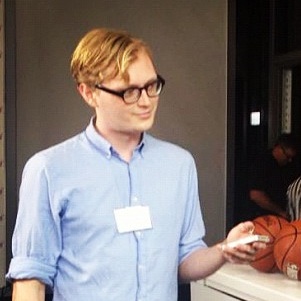 On the data analytics front, profound change is in the air, and open source tools are leading many of the changes. Sure, you are probably familiar with some of the open source stars in this space, such as Hadoop and Apache Spark, but there is now a strong need for new tools that can holistically round out the data analytics ecosystem. Notably, many of these tools are customized to process streaming data...Streaming data analytics are needed for improved drug discovery...While Apache Spark grabs many of the headlines in the data analytics space, given billions of development dollars thrown at it by IBM and other companies, several unsung open source projects are also on the rise. Here are three emerging data analytics tools worth exploring:
On the data analytics front, profound change is in the air, and open source tools are leading many of the changes. Sure, you are probably familiar with some of the open source stars in this space, such as Hadoop and Apache Spark, but there is now a strong need for new tools that can holistically round out the data analytics ecosystem. Notably, many of these tools are customized to process streaming data...Streaming data analytics are needed for improved drug discovery...While Apache Spark grabs many of the headlines in the data analytics space, given billions of development dollars thrown at it by IBM and other companies, several unsung open source projects are also on the rise. Here are three emerging data analytics tools worth exploring:
Hackathons Bring Open Source Innovation to Humanitarian Aid
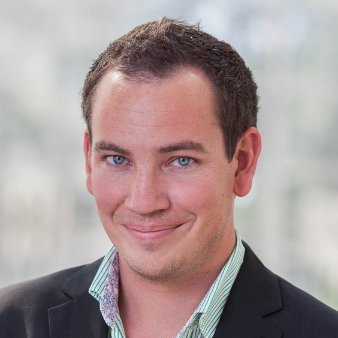 In open source software, end users, decision makers, subject matter experts, and developers from around the world can work together to create great solutions. There are a lot of mature open source projects out there already in the field of humanitarian and development aid, for example: Ushahidi and Sahana in crisis management and information gathering, OpenMRS for medical records, Martus for secure information sharing in places with limited freedom of speech, and Mifos X, an open platform for financial inclusion for people in poor areas where financial services such as savings, payments, and loans are not offered...
In open source software, end users, decision makers, subject matter experts, and developers from around the world can work together to create great solutions. There are a lot of mature open source projects out there already in the field of humanitarian and development aid, for example: Ushahidi and Sahana in crisis management and information gathering, OpenMRS for medical records, Martus for secure information sharing in places with limited freedom of speech, and Mifos X, an open platform for financial inclusion for people in poor areas where financial services such as savings, payments, and loans are not offered...
The Story of Ultimaker: 3D Printers with Open Source DNA
 Today we're seeing open hardware projects and businesses succeed for the first time in history. Why, and what do they look like? The story of the Ultimaker and its user community proves that being open is in fact sustainable and may even go a step further to say that that sharing and collaboration are genuine routes to innovation. Let's go back several years to a makerspace in Utrecht, a big city in the Netherlands. The founders of Ultimaker, a premium 3D printer manufacturer, were inspired by the potential of 3D printing, and experimenting with the open source designs of the RepRap project...
Today we're seeing open hardware projects and businesses succeed for the first time in history. Why, and what do they look like? The story of the Ultimaker and its user community proves that being open is in fact sustainable and may even go a step further to say that that sharing and collaboration are genuine routes to innovation. Let's go back several years to a makerspace in Utrecht, a big city in the Netherlands. The founders of Ultimaker, a premium 3D printer manufacturer, were inspired by the potential of 3D printing, and experimenting with the open source designs of the RepRap project...
Fewer Moonshots, More Walks
Council of the European Union calls for full open access to scientific research by 2020
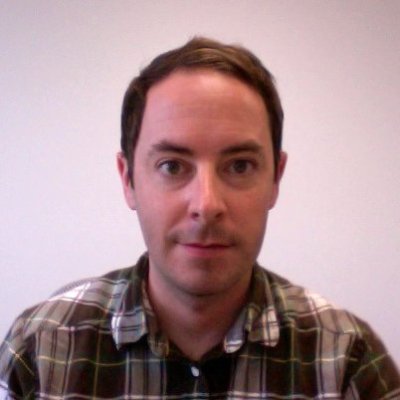 A few weeks ago we wrote about how the European Union is pushing ahead its support for open access to EU-funded scientific research and data. Today at the meeting of the Competitiveness Council of the European Union, the Council reinforced the commitment to making all scientific articles and data openly accessible and reusable by 2020. In its communication, the Council offered several conclusions on the transition towards an open science system:
A few weeks ago we wrote about how the European Union is pushing ahead its support for open access to EU-funded scientific research and data. Today at the meeting of the Competitiveness Council of the European Union, the Council reinforced the commitment to making all scientific articles and data openly accessible and reusable by 2020. In its communication, the Council offered several conclusions on the transition towards an open science system:
New Open Source Program Director Supports Students' Passions at the Rochester Institute of Technology
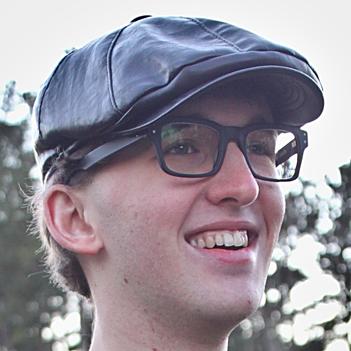 The Rochester Institute of Technology (RIT) is well-known for its work in open source software through FOSS@MAGIC. In April 2014, RIT started to offer a minor in free and open source software. Students work on several different open source projects in their GitHub organization. One of the courses in the minor, Humanitarian Free and Open Source Software Development, has students work with the One Laptop per Child XO laptops. Students create games that help teach New York and Massachusetts fourth grade math curriculum. Dan Schneiderman is the new head of the FOSS@MAGIC program at RIT...
The Rochester Institute of Technology (RIT) is well-known for its work in open source software through FOSS@MAGIC. In April 2014, RIT started to offer a minor in free and open source software. Students work on several different open source projects in their GitHub organization. One of the courses in the minor, Humanitarian Free and Open Source Software Development, has students work with the One Laptop per Child XO laptops. Students create games that help teach New York and Massachusetts fourth grade math curriculum. Dan Schneiderman is the new head of the FOSS@MAGIC program at RIT...
Open Source Marketing: Brands Matter—and Sharing Is Always Better
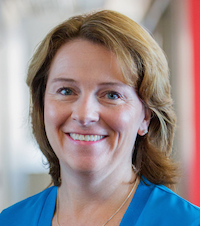 Marketing as we know it has changed dramatically, especially in the B2B world. I bet you're not surprised to hear me say that. I'm not the first to say it, and I certainly won't be the last. Observing changes to companies' methods for engaging their customers is the easy part. What's harder is understanding the nature of those changes and what they mean for you and your marketing teams. But as luck would have it, I recently found some help thinking through this a few weeks ago, when my local chapter of the American Marketing Association asked me to participate in a panel on the future of marketing...
Marketing as we know it has changed dramatically, especially in the B2B world. I bet you're not surprised to hear me say that. I'm not the first to say it, and I certainly won't be the last. Observing changes to companies' methods for engaging their customers is the easy part. What's harder is understanding the nature of those changes and what they mean for you and your marketing teams. But as luck would have it, I recently found some help thinking through this a few weeks ago, when my local chapter of the American Marketing Association asked me to participate in a panel on the future of marketing...
Practicing in an Age of Uncertainty
 If you've ever had a hard time trying to decide what's best for your health (e.g., Sorry, There's Nothing Magical About Breakfast), perhaps you can take comfort in the fact that physicians often aren't so sure either. Or perhaps not. A new study in Annals of Surgery, and nicely reported on by Julia Belluz in Vox, focused on surgical uncertainty. The researchers sent four detailed clinical vignettes to a national sample of surgeons, seeking to get their assessment on the risks/benefits of operative and non-operative treatment, as well as their recommendations. You'd like to think there was good consensus on what to do, but that was not the case...
If you've ever had a hard time trying to decide what's best for your health (e.g., Sorry, There's Nothing Magical About Breakfast), perhaps you can take comfort in the fact that physicians often aren't so sure either. Or perhaps not. A new study in Annals of Surgery, and nicely reported on by Julia Belluz in Vox, focused on surgical uncertainty. The researchers sent four detailed clinical vignettes to a national sample of surgeons, seeking to get their assessment on the risks/benefits of operative and non-operative treatment, as well as their recommendations. You'd like to think there was good consensus on what to do, but that was not the case...
Practicing in an Age of Uncertainty
 If you've ever had a hard time trying to decide what's best for your health (e.g., Sorry, There's Nothing Magical About Breakfast), perhaps you can take comfort in the fact that physicians often aren't so sure either. Or perhaps not. A new study in Annals of Surgery, and nicely reported on by Julia Belluz in Vox, focused on surgical uncertainty. The researchers sent four detailed clinical vignettes to a national sample of surgeons, seeking to get their assessment on the risks/benefits of operative and non-operative treatment, as well as their recommendations. You'd like to think there was good consensus on what to do, but that was not the case...
If you've ever had a hard time trying to decide what's best for your health (e.g., Sorry, There's Nothing Magical About Breakfast), perhaps you can take comfort in the fact that physicians often aren't so sure either. Or perhaps not. A new study in Annals of Surgery, and nicely reported on by Julia Belluz in Vox, focused on surgical uncertainty. The researchers sent four detailed clinical vignettes to a national sample of surgeons, seeking to get their assessment on the risks/benefits of operative and non-operative treatment, as well as their recommendations. You'd like to think there was good consensus on what to do, but that was not the case...
Raymond's "The Cathedral and the Bazaar" Continues to Impact the Open Source Movement
 Nineteen years ago this week, at an annual meeting of Linux-Kongress in Bavaria, an American programmer named Eric Raymond delivered the first version of a working paper he called "The Cathedral and the Bazaar." According to Raymond, the exploratory and largely speculative account of some curious new programming practices contained "no really fundamental discovery." But it brought the house down. "The fact that it was received with rapt attention and thunderous applause by an audience in which there were very few native speakers of English seemed to confirm that I was onto something," Raymond wrote a year later, as his treatise blossomed into a book...
Nineteen years ago this week, at an annual meeting of Linux-Kongress in Bavaria, an American programmer named Eric Raymond delivered the first version of a working paper he called "The Cathedral and the Bazaar." According to Raymond, the exploratory and largely speculative account of some curious new programming practices contained "no really fundamental discovery." But it brought the house down. "The fact that it was received with rapt attention and thunderous applause by an audience in which there were very few native speakers of English seemed to confirm that I was onto something," Raymond wrote a year later, as his treatise blossomed into a book...
Linux Whips Apple's macOS in the Race to the Automobile CarOS
 I don't think much about it while I'm driving, but I sure do love that my car is equipped with a system that lets me use a few buttons and my voice to call my wife, mom, and children. That same system allows me to choose whether I listen to music streaming from the cloud, satellite radio, or the more traditional AM/FM radio. I also get weather updates and can direct my in-vehicle GPS to find the fastest route to my next destination. In-vehicle infotainment, or IVI as it's known in the industry, has become ubiquitous in today's newest automobiles...
I don't think much about it while I'm driving, but I sure do love that my car is equipped with a system that lets me use a few buttons and my voice to call my wife, mom, and children. That same system allows me to choose whether I listen to music streaming from the cloud, satellite radio, or the more traditional AM/FM radio. I also get weather updates and can direct my in-vehicle GPS to find the fastest route to my next destination. In-vehicle infotainment, or IVI as it's known in the industry, has become ubiquitous in today's newest automobiles...
Patients are Consumers, Too. Why a Portal Strategy Should Embrace Both
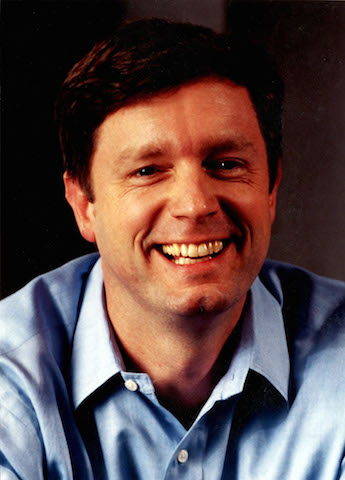 Patient engagement is easy, right? Just create a portal and tell patients it’s there. Of course, no one who puts a little thought into this idea believes it can be so simple. Healthcare isn’t “Field of Dreams,” after all. We can build it. They still might not come. But we still need to try and understand why, as this 2014 Health Affairs study found, the increased use of EHR technology has not created a parallel increase in electronic communication among patients and clinicians. In short, if patient portal use is an accurate indicator, how do we get patients engaged and hold their attention? One key issue might be that we’re not in agreement on what patient engagement is and what it is not.
Patient engagement is easy, right? Just create a portal and tell patients it’s there. Of course, no one who puts a little thought into this idea believes it can be so simple. Healthcare isn’t “Field of Dreams,” after all. We can build it. They still might not come. But we still need to try and understand why, as this 2014 Health Affairs study found, the increased use of EHR technology has not created a parallel increase in electronic communication among patients and clinicians. In short, if patient portal use is an accurate indicator, how do we get patients engaged and hold their attention? One key issue might be that we’re not in agreement on what patient engagement is and what it is not.
Time to Choose: Are You Investing in Open Source or Not?
 In 1996, the term "open source" didn't exist. Yet 20 years later, open source technology spans countless projects and brings together the collective talent of millions. Take a close look at any open source project or community of developers and you'll find incredible levels of speed, innovation, and agility. Open source participation varies wildly. Some developers devote their professional lives to open source software projects; others contribute their time and talent as an avocation. While the communities behind the software continue to grow, the technology itself is playing both a foundational role in the most important technology developments of the past 20 years and is also an integral role in the strategies powering many of today's leading organizations...
In 1996, the term "open source" didn't exist. Yet 20 years later, open source technology spans countless projects and brings together the collective talent of millions. Take a close look at any open source project or community of developers and you'll find incredible levels of speed, innovation, and agility. Open source participation varies wildly. Some developers devote their professional lives to open source software projects; others contribute their time and talent as an avocation. While the communities behind the software continue to grow, the technology itself is playing both a foundational role in the most important technology developments of the past 20 years and is also an integral role in the strategies powering many of today's leading organizations...
Open Source at Your Company? 6 Questions Your Manager Will Ask
 Christian Grail gave a talk at OSCON 2016 titled: "How to convince your manager to go open source." I thought the perspective was going to be from the user side but it was from the employee side, about convincing your manager to open source the projects at your company. "Isn't the quality going to suffer?" There is a perception that when we're only depending on our internal team, we can control the quality. The fact is that with open source, you have nice lean code and the quality is usually better because it's being worked on all of the time, regardless of where and by whom. The advantage with most open source software is that you get a community, so you have more than just your team of X developers...
Christian Grail gave a talk at OSCON 2016 titled: "How to convince your manager to go open source." I thought the perspective was going to be from the user side but it was from the employee side, about convincing your manager to open source the projects at your company. "Isn't the quality going to suffer?" There is a perception that when we're only depending on our internal team, we can control the quality. The fact is that with open source, you have nice lean code and the quality is usually better because it's being worked on all of the time, regardless of where and by whom. The advantage with most open source software is that you get a community, so you have more than just your team of X developers...